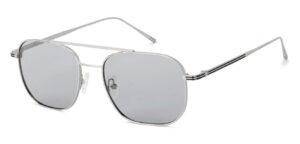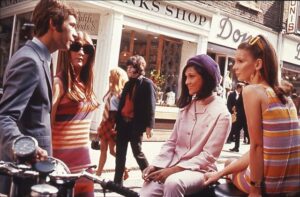Naming Fashions: Does It Matter What We Call Our Clothing?
3 min read
Modern society tends to get hung up on some pretty dumb things. Someone uses a word or phrase we don’t like and the whole world comes to an end. It’s kind of foolish. For example, does it really matter what we call our clothing? And if not, why do so many people get upset over fashion industry terms?
A case in point is the phrase ‘mom jeans’. Over in the UK, M&S sells a line of jeans for women they call mom jeans. They took a lot of heat for a recent promotion involving the products. Apparently, customers were upset about the term – as though mothers would never wear the jeans M&S was marketing.
For the record, M&S mom jeans are loose-fitting jeans with a tapered leg. They even come in white. This is apparently a no-no, as customers claimed that no mother would wear white jeans. Some of the strangest comments came from customers who claimed to be mothers while simultaneously insisting they would never wear mom jeans.
They Have To Be Called Something
M&S finds itself in the same position as so many other companies. They have to tiptoe around the marketing department so as to not risk offending someone by using certain words. It is not clear what is so offensive about ‘mom jeans’, but apparently it is a phrase M&S should have avoided. What other name could they have used?
The problem is this: they have to give these particular jeans some kind of name that differentiates them from other jeans in their inventory. Whatever name they choose has to be marketable. It has to be memorable. If they named the jeans something like ‘loose-fitting jeans with a tapered leg’, it would not fly. Such a term is neither marketable nor easy to remember.
Fortunately, not everyone who saw the M&S marketing campaign was offended. Many customers commented about how much they liked and appreciated the jeans. A few even went on to declare how little they care about the name as long as the jeans are good quality garments.
Names Mean Very Little
The thing to remember about fashion is that the names of different kinds of garments mean very little. Names are chosen for their marketability. In fact, some names even evolve over time to the point that their origins are barely remembered. Take the T-shirt, for example. Salt Lake City’s The Stockist boutique says today’s T-shirts aren’t what they used to be.
The original T-shirt was so named because of its cut and style. A T-shirt was a T-shirt from the early 20th century through the mid-1990s. Then something changed. The origins of the T-shirt were set aside in favor of putting more emphasis on the somewhat unique material T-shirts are made from. That led to an evolution in terms.
For example, you can now find hoodies advertised as T-shirts. That’s because they are made of the same material. In reality though, they look nothing like the original T-shirts in terms of cut and style. So the term itself has evolved to mean something entirely different.
Furthermore, you can buy all sorts of T-shirt items that are not really T-shirts. Take the T-shirt dress and T-shirt mumu. Neither item is a shirt in any way, shape, or form. But both have earned the T-shirt moniker because they are made of the same type of material as classic T-shirts.
In the end, does it really matter what we call our clothing? No. As long as it does the job, names are just words marketers use to sell us products.






